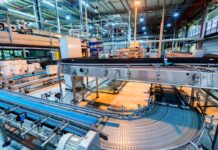
Leading uranium producer Cameco has received environmental approval for its Yeelirrie uranium project, subject to 17 strict conditions.

The decision follows a rigorous environmental assessment process, significant public consultation and agreement between Environment Minister Albert Jacob and the Ministers for Water, Mines and Petroleum, Aboriginal Affairs and State Development.
Commenting on the award of the environmental approval, Premier Colin Barnett said the Yeelirrie deposit was particularly large by world standards and would cement WA’s reputation as a significant player in the uranium industry.
“Australia has been producing and exporting uranium for peaceful purposes for more than 30 years and it is high time that Western Australia with our significant reserves, became part of that industry,” Mr Barnett said.
“Australia’s international treaties guarantee that uranium can only be used for peaceful purposes. We should also remember that nuclear medicine is also an important part of our health care system.”
State Development Minister Bill Marmion also stressed that uranium was an important industry for the state.
“Clearly, this project has the potential to deliver significant economic benefits to the State should it proceed,” Mr Marmion said.
“The Liberal National Government supports a well-regulated uranium industry for the jobs and economic growth potential it provides and for the clean energy production it supports.”
When assessing the proposal, the Environmental Protection Authority determined that it was acceptable for eight of nine key environmental factors, including protecting human health.
However, it recommended against approval because there was “potential for the loss of species of stygofauna and troglofauna” in the project area.
Mr Jacob said the Government has applied conditions to the proposal requiring Cameco to undertake further surveys and research to improve knowledge of underground fauna and measures to minimise impacts on these species.
“Further surveys may identify that the species currently only found within the project area are more widespread. I have therefore mandated as part of this approval further survey work and investment in research,” he added.
The Cameco project will have an operational life of 18 years and capital and operating costs of $5 billion. It is expected to provide employment for about 225 people during operations and up to 1,200 people during peak construction.



















